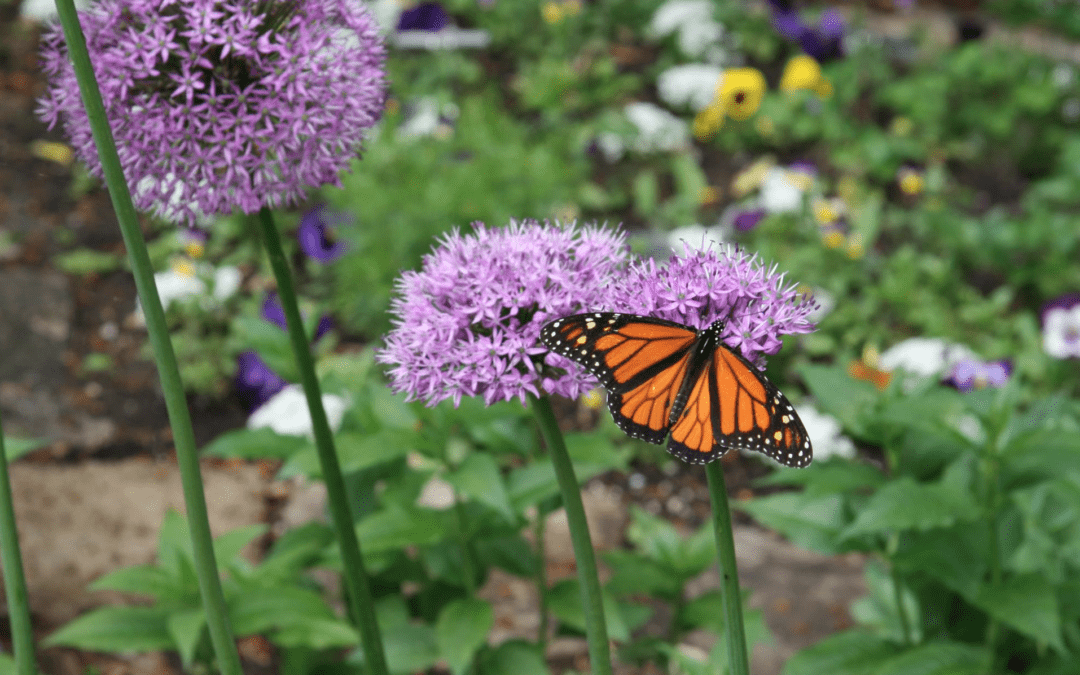May is usually a gardener’s favorite time, and this year even more so! The cool spring held spring flowering trees in check, but this week’s heat is pushing plants hard, all at once. Every yard in my neighborhood reminds me of a technicolor Munchkinland when Dorothy steps out of that fallen house. Those chilly temps also delayed some of the early spring blooming perennials.
Let’s talk for a moment about Boxwood. We’ve had reports at the Plant Information Desk of established plants showing some winter damage. If your Boxwood are yellowish, they are not infected with Boxwood Blight, they are suffering from winter damage. Give them until Father’s Day to do any pruning as buds for this season’s growth may have survived even though the foliage did not. Boxwood Blight is another matter, and since it was found in Dane County a couple of years ago, the Garden Center will not be stocking Boxwood again this season. For more information on determining the difference, follow this link.
www.extension.purdue.edu/extmedia/BP/BP-203-W.pdf
Rainfall has been a little more regular this spring than last, but the winter was very dry. Make sure to water things that were planted in 2021. And keep your eyes open for fungal development, especially if you experienced it last year. Powdery mildew, various leaf spots and apple scab are the most common. While fungus can be fairly easy to control on ornamental plants, treating fruit crops is trickier as you can’t use the systemic products. These types of fungicides and insecticides enter the tissue of the plant, making them unsuitable for eating. And this isn’t restricted to you and your family. Birds and small wildlife can be harmed if they ingest systemically treated fruits. There are great biological fungicides on the market. I like to have a bottle of Revitalize on hand, just in case.
Watch out for cherry leaf spot and brown rot on any stone fruit crops such as cherries, plums and peaches. These fungal diseases can be prevented with a recommended fungicide. It is too late to treat for peach leaf curl, but if you see it, make a note to remind yourself to apply a dormant spray of lime sulfur early next spring. And thinning the crop will lessen the stress on the plant.
It looks to be warm enough to plant out all those heat-loving veggies like tomatoes, peppers and eggplant. They’ll soon be growing like crazy, but monitor the forecasts. If night temps dip below 45, get out those floating row covers and empty nursery pots and cover up! Keep your eyes peeled for insect pests, too. We’ve haven’t heard any reports of cabbageworm yet, but are certain they are looming on the horizon. These pale green caterpillars will devour anything in the cabbage family. Pick them off or treat with Eight. And the zimmerman sawfly caterpillars are active on mugo pines in the area. You can zap them with Sevin.
We’ll finish with a few words about all of the late emerging plants. We’ve seen a lot of “dead” roses, hydrangeas and weigelas coming into the Plant Desk. Even though the top-growth looks really horrid, mature plants have established root systems. There is every chance that the plant will send new shoots form the roots. So be patient. If you have warranty questions, bring in photos. And do what you can to keep your affected trees and shrubs healthy and vigorous. I can’t say it often enough. Get your sprinklers out and water anything that you planted last year.


